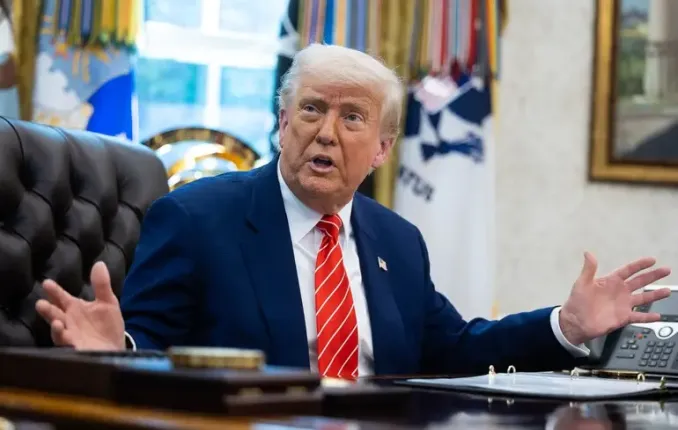US ready to attack Iran’s nuclear facilities again under Trump’s condition

US President Donald Trump has openly stated that the US may once again use military force against Iran if there are signs of possible uranium enrichment by this country. He made this known during an official meeting with journalists at the White House on June 27, clearly outlining his position on Tehran's nuclear program and possible further steps by Washington in this direction. When asked whether the administration was considering the possibility of bombing Iranian nuclear facilities if it received intelligence about Tehran's intentions to further enrich uranium, Trump unequivocally confirmed his readiness. "Without a doubt. Absolutely," he replied in a voice that emphasized the determination in this policy. This is, in fact, a signal to the Iranian leadership and the international community about the firm intentions of the US to defend its interests and prevent any potential threats of nuclear expansion. In his statements, Trump also expressed confidence that Iran would not be able to quickly restore or develop its nuclear program after previous US strikes, noting that he did not see visible signs of resuming activities in this area in the near future. He especially emphasized that Iran's secret nuclear facilities, in his eyes, are exhausted and no longer pose such a threat as in the past. "I can tell you—they are exhausted. And Israel is exhausted too. The last thing they are thinking about right now is nuclear weapons. They are thinking about tomorrow, trying to survive," Trump emphasized. These words indicate his efforts to instill in the world community an idea of a reduced level of threat from Iran and to strengthen his positions in diplomacy. Earlier, American media reported that the Trump administration is considering the possibility of providing financial support to Tehran in the amount of up to $ 30 billion for the development of a civilian nuclear program, as well as offering to ease existing sanctions and release some of the blocked Iranian assets. This, according to the plan, should contribute to the return of Iran to the negotiating table and, perhaps, a gradual return to diplomatic regulation of the nuclear dispute. In addition, the United States hopes that the recent weeks of tension and military presence in the region have forced the Iranian regime to reconsider its intentions and agree to Washington's conditions regarding the nuclear program, refusing to accept the possibility of creating nuclear weapons. At the same time, experts warn that the situation may also take the opposite turn. In their opinion, the current pressure and internal defeat in the region may prompt Tehran to decide to create nuclear weapons in order to ensure greater political and military independence. Thus, the situation around the Iranian nuclear program remains tense and unstable. In conditions of high geopolitical tension in the world and serious intentions of the United States, any development of events may again lead to a military conflict or new diplomatic maneuvers, which will have a long-term impact on security and stability in the Middle East.

